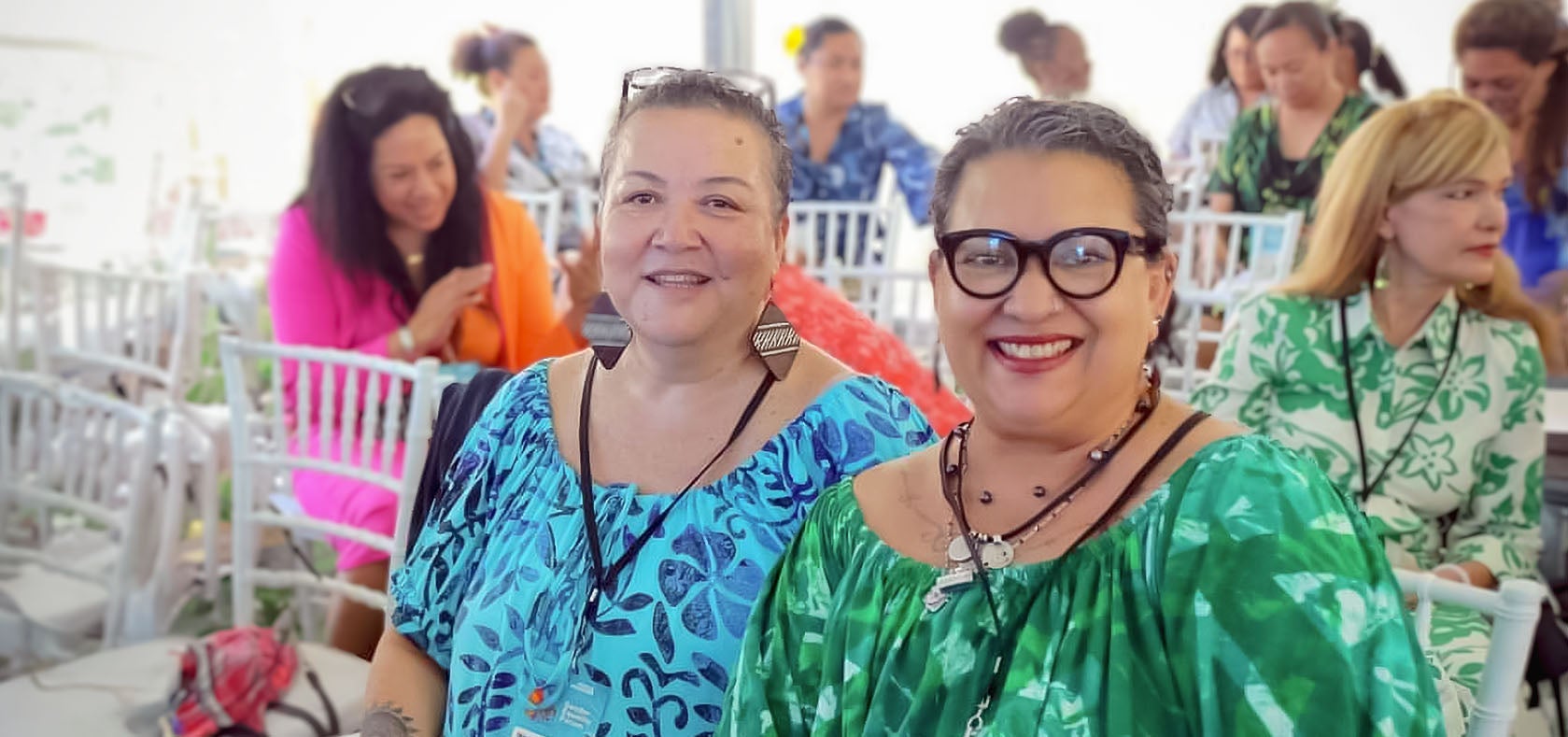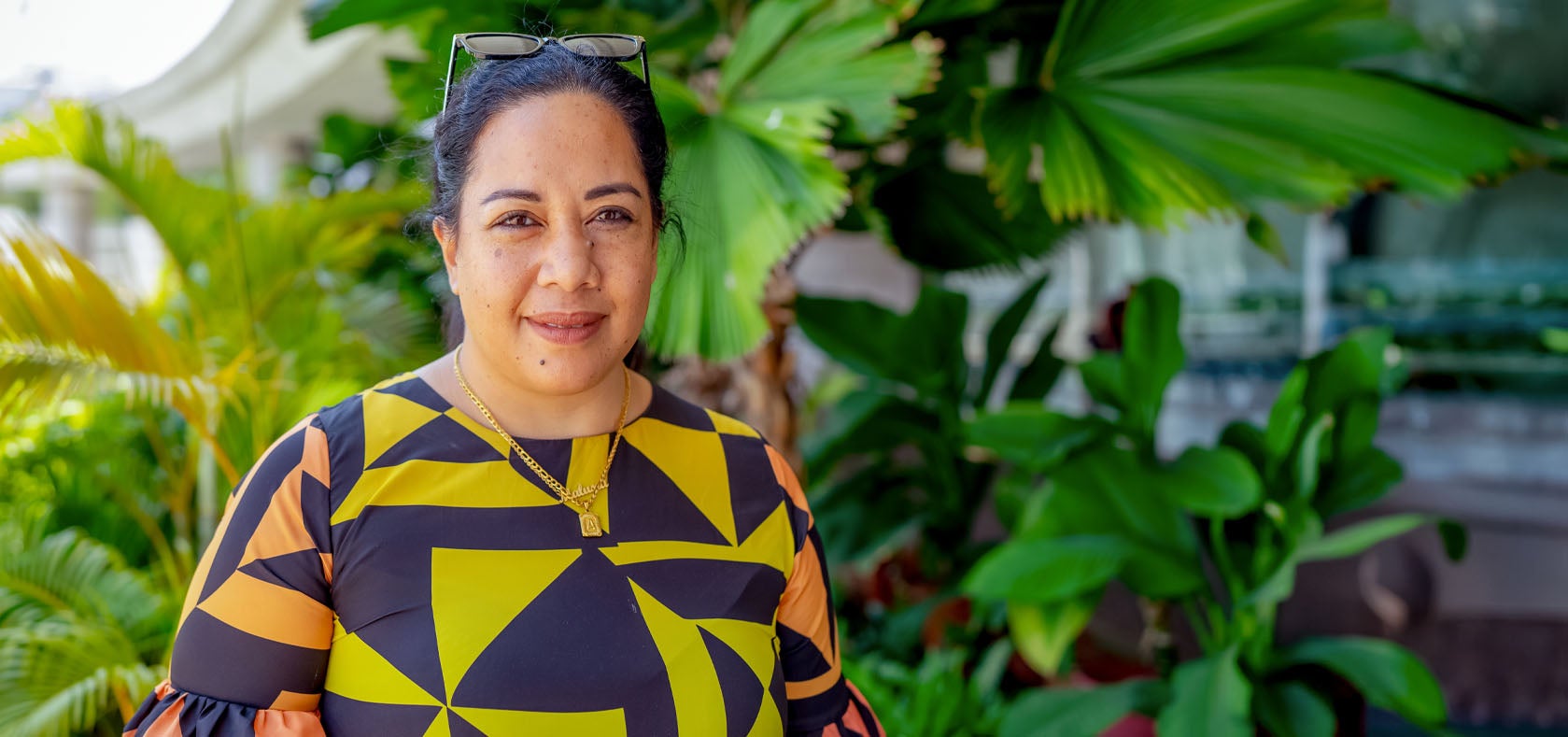Civil society reflects on gender equality commitments at the 15th Pacific Triennial Conference for Pacific Women
Date:

Two months after the Fourth Small Island Developing States Conference (SIDS4), held in Antigua and Barbuda between 27-30 May 2024, Pacific civil society participants have been reflecting on the commitments made and the momentum building towards the 15th Pacific Triennial Conference for Pacific Women in the Republic of the Marshall Islands.
On 25 and 26 May, ahead of the SIDS4, a pioneering Gender Equality Forum (GEF) was co-organized by the UN Women Multi-Country Offices (MCOs) in the Caribbean and the Pacific. The forum drew over 200 stakeholders from over 40 countries, all committed to centering gender equality and the empowerment of women in the SIDS4 discussions and the outcome, i.e., the Antigua and Barbuda Agenda for SIDS (ABAS). The GEF resulted in a Gender Equality Forum Communiqué, which was shared during the SIDS4's Moment of Declaration on 30th May, an event to report back from the special events organised in connection with the SIDS4.
Speaking on the overall agenda of the conference, Noelene Nabulivou, Executive Director of civil society organization Diverse Voices and Action (DIVA) for Equality stated that: “Pacific feminist movements engage in all the SIDS Conferences up to and including the SIDS4 because we understand that several sets of gender justice and women's human rights work are strongest addressed at the regional and SIDS levels. As well as a yearly presence at the Commission on the Status of Women (CSW), feminists from the region know that the SIDS development space is important to build wider gender justice momentum in small island politics and to ensure the strongest development outcomes”.
Reflecting on GEF, Sharon Bhagwan Rolls, Programme Manager of the Pacific Women Mediators Network stated that: “I believe for the few Pacific Island Feminist movement representatives present at the Gender Equality Forum, there is a greater determination to ensure we don't lose the gains achieved through waves of organising and engaging in successive multilateral processes and our own regional intergovernmental processes, particularly as we have the revitalized Pacific Leaders Gender Equality Declaration (PLGED) and the Blue Pacific Strategy.”
Ms Bhagwan-Rolls highlighted the necessity for meaningful civil society inclusion and participation early in these processes. She said, “The Pacific Island region has a lot to offer through the policy commitments that have been developed and adopted with input from our feminist and women’s rights movement. We need greater representation of the Pacific Island feminist movement in panels.”
On the contents of the SIDS4 GEF Communiqué, Ms. Nabulivou pointed out the priorities of the Pacific and SIDS feminist movements being included. “It is important that they are implemented in the coming ten years, and we will be closely monitoring progress. At SIDS4, as always, social movements were clear that we work for justice and human rights so that all people, including women, can fulfil their human rights and fundamental freedoms without discrimination on any grounds, including sex, gender identity and expression, sexual orientation, sex characteristics, race and skin colour (racism and colourism), ethnicity, ability, creed, age, socio-economic condition, political identity, marital status or other distinction. The GEF Communiqué was clear that achieving gender equality demands a strategic, intersectional, gender-transformative, human-rights-based and SIDS-appropriate approach.”

Doris Tulifau, founder of civil society organization “Brown Girl Woke” underscored the climate crisis as a key priority at the SIDS conference, saying, “The most significant outcomes include the call for reparative and adequate climate finance to address the ecological crisis exacerbated by neoliberal capitalist greed. The Communiqué criticises current approaches that prioritise profit over people and the environment, advocating instead for inclusive, sustainable alternatives. These outcomes directly influence organisational initiatives by highlighting the critical need for a gender-just and well-resourced SIDS4 Roadmap that integrates gender equality and human rights considerations comprehensively. They underscore the importance of collaborative efforts towards deeper democracy, economic justice, and ecological sustainability, reflecting a commitment to transformative change in SIDS.”
Amid global pushback on women's human rights, there is a renewed call to advance gender equality and accelerate progress achieved over decades. Since its inception over 40 years ago and the adoption of the Pacific Platform for Action for Gender Equality and Women’s Human Rights 2018–2030 (PPA), the Triennial Conference has been the primary mechanism for monitoring the progress outlined in the PPA. Held every three years to assess progress on gender equality and women's empowerment in the Pacific, it is one of the platforms for Pacific nations to reflect on global conversations that occurred at events such as the GEF and SIDS4 and localise them to the Pacific, ensuring that the needs and voices of women and girls throughout the Pacific are carried forward into global proceedings. Key among them in 2025 will be the Sixty-Ninth session of the Commission on the Status of Women (CSW69) which will be on the review and appraisal of the implementation of the Beijing Declaration and Platform for Action and the outcomes of the 23rd special session of the General Assembly. This will take place from March 10 to 21, 2025
Ms Nabulivou emphasized the urgency of addressing the current challenges, “Pacific feminist social movements and women human rights defenders continue to work globally, including at SIDS, for urgent shifts required to adequately address the current poly-crisis that sees existing gender injustice and human rights violations exacerbated by climate and ecological loss and damage and ecocide; conflict, war and occupation,” she said.
Nabulivou added, “We must fix our domestic policies as much as our foreign geopolitics and state-to-state engagement as small island states, and we are determined that women-led autonomous movements will be substantively engaged.”
At the conclusion of the Triennial Conference, a comprehensive outcome document will be crafted, outlining strategic directions for regional efforts to enhance gender equality over the next three years. This document will aim to consolidate critical priorities and commitments identified during the conference, guiding future initiatives and fostering sustained progress towards achieving gender parity in the Pacific. The endorsed outcomes from the Triennial will shape Pacific priorities leading up to CSW69, including the Asia-Pacific Ministerial Conference on the Beijing+30 Review in Bangkok in November, and will inform Pacific statements in both Bangkok and New York during CSW69.
Ms Bhagwan-Rolls said, “Declarations are important, and these are commitments by member states who are already struggling to achieve the goals of equality, including with dedicated resources. In the context of the work of the Pacific Women Mediators Network, we welcome all references to peace and security or the Islands of Peace, but we have to ensure that this is not about a militarised peace and security and is inclusive of the ongoing struggle for self-determination in our region and processes that ensure the suite of women, peace and security resolutions.”
“The efforts of civil society organisations are vital for advancing gender equality in the Pacific. Their dedication and action not only sustain momentum but also drive transformative change. As we move towards Beijing+30 and CSW69, the active engagement and support of all stakeholders remain essential to achieving our shared goals for a more ecologically sound (or ecologically sustainable), equitable and just future,” said Ms. Nabulivou.
The 15th Triennial Conference of Pacific Women concluded on July 24, 2024, followed by the 8th Meeting of Pacific Ministers for Women held from July 25-26, 2024. During this meeting, the Outcomes Document will be presented for endorsement.